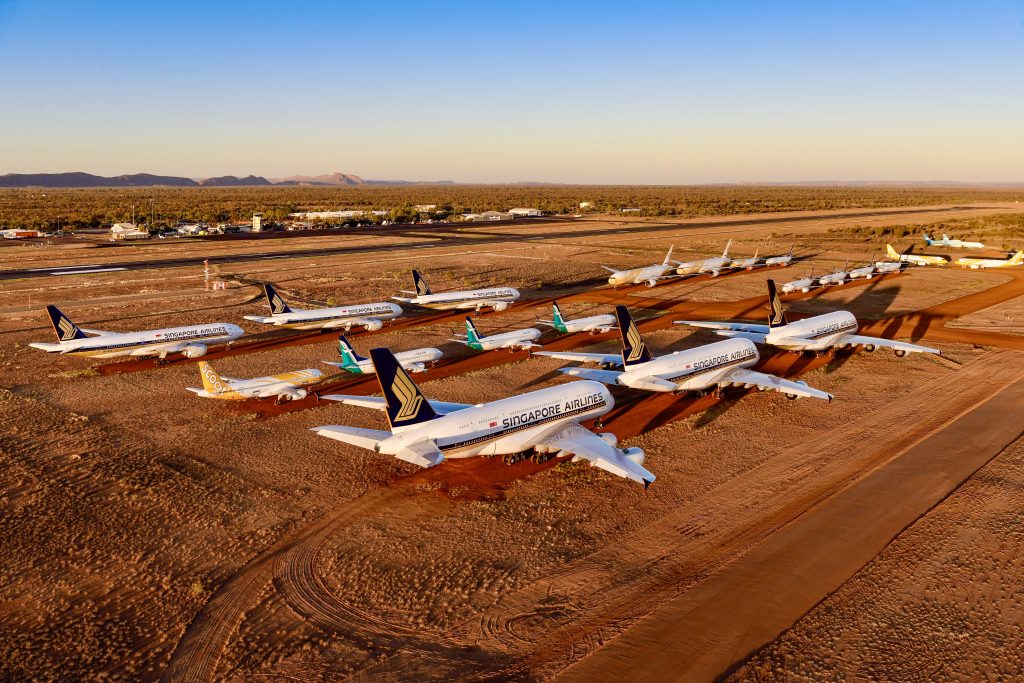
Virgin Australia, which filed for bankruptcy in April and was recently acquired by Bain Capital, said Wednesday (5 August) that it planned to get rid of at least 3,000 employees and reorganise its fleet around the Boeing 737 as it struggles to survive amid the ongoing COVID-19 pandemic that has decimated the global aviation industry. The airline will be left with about 6,000 workers that will coalesce around the Virgin Australia brand as the new owners plan to shed the Tiger Australia low-cost model. Virgin added that it would retain the Tiger air operator certificate (AOC) in case domestic travel recovered to the point where it could restart the LCC.
Virgin said in a statement announcement the layoffs that it will operate an all Boeing 737 mainline fleet, with other aircraft types restricted to regional routes and charters. This will mean removing ATRs, Boeing 777s, Airbus A330s and Tiger’s Airbus A320s from the airline’s fleet.
Virgin Australia chief executive Paul Scurrah said the airline had no choice but to shrink to survive amid the COVID-19 pandemic. “Demand for domestic and short-haul international travel is likely to take at least three years to return to pre-COVID-19 levels, with the real chance it could be longer, which means as a business we must make changes to ensure the Virgin Australia Group is successful in this new world,” he said in a statement. “Working with Bain Capital, we will accelerate our plan to deliver a strong future in a challenging domestic and global aviation market. We believe that over time we can set the foundations to grow Virgin Australia again and re-employ many of the highly skilled Virgin Australia team.”

Australia’s Transport Workers’ Union’s (TWU) national secretary, Michael Kaine, welcomed the news that Virgin would remain a “full service” airline with some international routes. “This has not been an easy process and Virgin workers have worked hard to ensure that instead of going down the route of a low-cost model where more jobs might have gone, Virgin will be able to retain its place in the market and hold onto the vital experience and skills of many of its workers,” he said in a statement. “The TWU and other unions have made the case for the maximum number of jobs at the airline and to ensure that it retains the elements that make it competitive and an important option for the travelling public, such as its maximising jobs, retaining regional operation Vara, tiered cabin classes, airport lounges and the airline’s international arm.”
Virgin officials said all indicators show that demand for domestic and short-haul international travel is likely to take at least three years to return to pre-COVID-19 levels, with the real chance it could be longer. The International Air Transport Association (IATA) has said international travel won’t rebound to pre-COVID-19 levels until at least 2024.
The Association for Virgin Australia Group Pilots (VIPA) said after the announcement that it was “devastated” because it anticipates that in excess of 30 percent of the Virgin pilot group will lose their jobs. The layoffs impact pilots flying the B777 and A330 internationally and the ATR72. The union said it was unsure of the impact upon the B737 Virgin fleet.

The total number of pilots who will be made redundant is likely to be approximately 400 of the 1,400 remaining Virgin Australia Group pilots. VIPA represents more than half of these. “The knock-on effect this decision will have on the economy is significant; including future skills shortages, loss of technical experience and the inability to retain skilled Australian pilots,” VIPA President John Lyons said Wednesday. “The federal government has let down these Virgin employees and the Australian aviation industry as a whole by not providing specific support, as well as the travelling public – this is the exact opposite action that governments in the US, UK and Europe have taken. Given the specialist nature of these roles, our workers’ skills are not easily transferable and take years to secure, so they dedicate their careers to these jobs. This is devastating news for them, but also very sad news for the Australian public at large who will undoubtedly see an increase in fares and decrease in services as a result.”




0 Comments